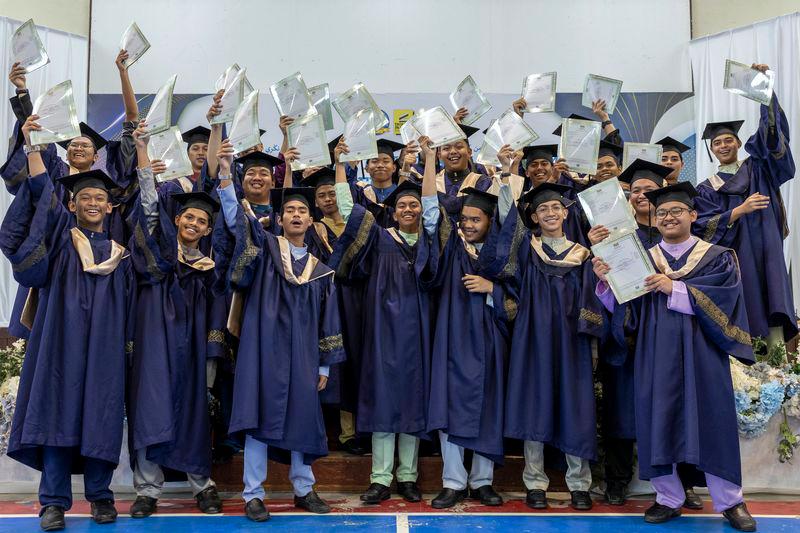KAJANG: The Sijil Pelajaran Malaysia (SPM) 2024 examination results are a clear indicator of improved national education quality, but several segments still require improvement and will continue to receive attention, said Education Minister Fadhlina Sidek.
She said these include attendance rates, the performance gap between urban and rural candidates, and the pass rates of core subjects such as Bahasa Melayu and History, which are compulsory to obtain the SPM certificate.
“Attendance for this examination is one of the more significant aspects, in my view, as the interventions we implemented have helped reduce absenteeism to some extent.
“Then, there are measures to bridge the urban-rural achievement gap, as well as efforts to ensure continuous improvement in pass rates for Bahasa Melayu and History.
“There are still many areas that need improvement, and we take these matters seriously to ensure even better results in future,” she told reporters after attending the SPM 2024 Results Slip Presentation Ceremony at Sekolah Menengah Kebangsaan Convent (M) Kajang today.
Fadhlina also expressed hope that the strong performance this year would inspire teachers to continue prioritising quality teaching and subject mastery in the classroom.
Earlier, Education director-general Datuk Azman Adnan announced that the SPM 2024 results marked the best performance since 2013, with the National Average Grade improving to 4.49 from 4.60 in 2023.
He said 14,179 candidates obtained distinctions (Grades A+, A and A-) in all subjects, compared to 11,713 candidates the previous year.
In another development, Fadhlina dismissed concerns that the government is sidelining languages such as Tamil and Chinese in schools, amid proposals to expand the range of elective languages offered.
“These foreign languages are already being offered as electives at the school level, including German, French and several others.
“There is no issue of sidelining any language. In vernacular schools, Tamil and Chinese remain key languages alongside Bahasa Melayu as the national language,” she said.
Previously, Fadhlina was reported as saying that Malaysia is expanding elective language offerings in schools to include ASEAN languages such as Thai, Khmer, and Vietnamese, to promote closer regional cooperation.









